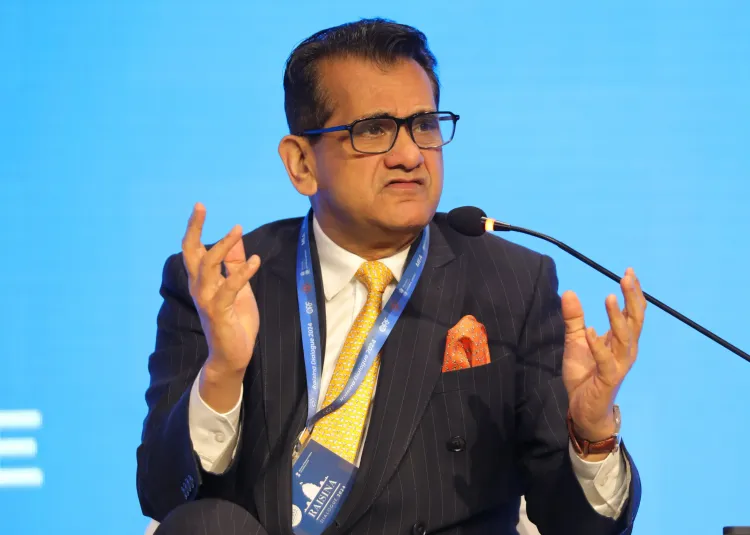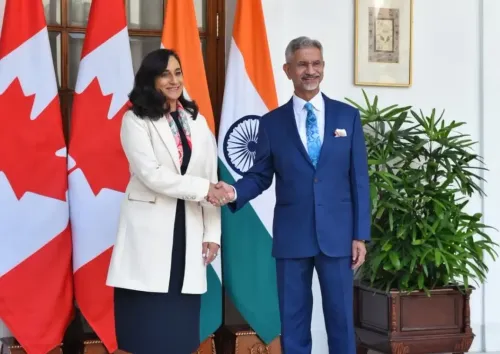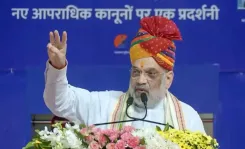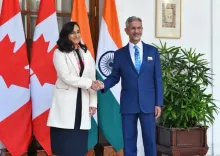Has Rajasthan Set a New Benchmark for Battery Energy Storage Prices in India?

Synopsis
Key Takeaways
- Rajasthan sets a record with battery storage at ₹1.77 lakh per MW.
- Significant increase of 25 GW in renewable energy capacity.
- India is now the third-largest solar energy producer worldwide.
- Government initiatives are making solar energy accessible to millions.
- India has met its renewable energy goals five years ahead of time.
New Delhi, Oct 13 (NationPress) In a major step forward for green energy sustainability, Rajasthan has achieved a groundbreaking record with the lowest battery energy storage price in India at ₹1.77 lakh per megawatt (MW), as stated by Amitabh Kant, the former CEO of NITI Aayog, on Monday.
In a recent post, Kant, who has also served as India's G20 Sherpa, highlighted that this achievement will accelerate the shift towards renewable energy across the nation by making it more cost-effective.
"This is a significant milestone that will enhance grid reliability, boost renewable energy adoption, and make clean energy more accessible for India," Kant shared on X.
Previously, Pralhad Joshi, the Minister of New and Renewable Energy, announced that India has witnessed a remarkable addition of 25 GW of renewable capacity between April and September this year, predominantly driven by solar energy.
With approximately 125 GW of solar capacity, India has ascended to become the third-largest solar producer globally.
“India has reached a historic milestone in clean energy with an impressive 25 GW of renewable capacity added in H1 FY26, primarily from solar power. This achievement embodies PM Narendra Modi’s vision for a sustainable future, propelling the country towards global leadership in renewable energy,” the minister stated on X.
This accomplishment reflects PM Modi’s aspirations for a sustainable future, as India accelerates its journey to becoming a leader in green energy.
"India has met its renewable energy targets five years ahead of schedule. The country has crossed the 50% threshold in total installed electricity capacity sourced from non-fossil fuels," the minister noted.
At the launch event for the 8th session of the International Solar Alliance (ISA) assembly, scheduled for October 27-30 in New Delhi, the minister stressed that India’s success story is not merely about figures; it is fundamentally about the people.
“We have witnessed how decentralized solar energy changes lives, illuminating rural homes, powering local health facilities, and equipping our farmers with new tools. Thanks to the PM Surya Ghar Muft Bijli Yojana, over 2 million households are now reaping the benefits of solar energy,” Joshi stated.









